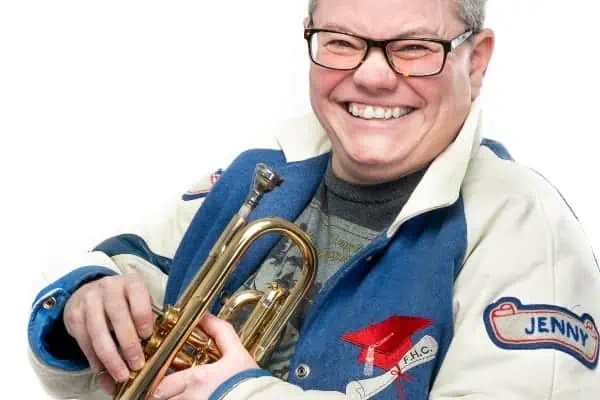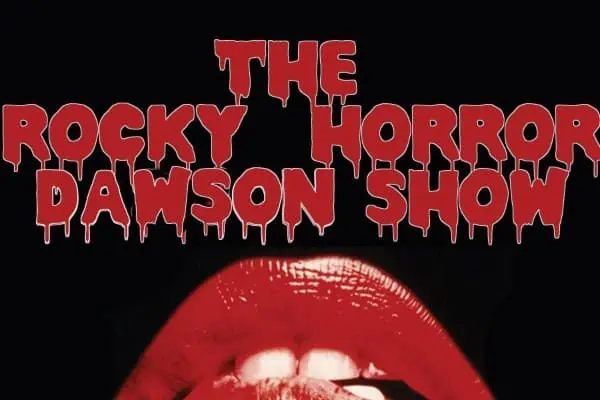When Chris Quinn exchanges his banjo for a guitar, and Chris Coole makes the opposite switch, that’s the signal the Foggy Hogtown Boys are about to move from bluegrass to oldtime Appalachian music.
Apart from that, and some “subtle nuances” in how mandolin player Andrew Collins approaches the rhythm, you may not notice much of a difference.
“If you ask the average person who’s really into oldtime music, they would probably give you a different answer, but I think there’s a very fine line between the two,” Collins says.
“What we refer to as bluegrass music definitely has a very specific format, where it’s got the three-finger (up-picking) banjo style,” rather than the distinctive clawhammer style of oldtime music, he explains.
“Originally, it was blending church singing and fiddle music with blues music, so it was kind of a fusion. And oldtime music was originally less of a performance type music. It was just what people were playing.”
Since its formation in 2001, the five-piece Toronto band has undergone only one change in personnel, when Max Heineman succeeded Jon McNaughton on acoustic bass in 2007.
Collins credits Coole with getting him interested in music when they were both in high school and attended a bluegrass festival together.
“When the shows weren’t happening, we were at the campsite and everyone was jamming,” he recalls. “And it really was a huge impetus for my eventually starting to play, because I just saw people involved in it, not just like taking it in.”
Coole and Quinn had been in various bands together before Collins started playing. Later, when Coole landed a weekly matinee gig at a “crappy little bar in Toronto,” he invited the two, along with McNaughton and fiddler John Showman, to join him.
“So we all started playing together, and we’ve been growing strong ever since.”
While one might not normally associate North America’s third-largest city with the rural music of the southern United States, Collins says Toronto now has an “absolutely huge” bluegrass scene, with a ton of great young bands coming up.
“I’ll admit, when the Foggies first started, there really weren’t a lot of bands around town. I’m not saying we’re responsible for this boom, but I think us being around definitely helped with exposure of the city.”
It didn’t hurt that bluegrass music was undergoing an international surge in popularity, thanks in part to the 2000 film, O Brother, Where Art Thou? and its wildly successful soundtrack.
“People were starting to become aware that the next generation was taking it up. It’s infectious. When people get into bluegrass music, they realize that everyone plays it, as well. It encourages people really being involved in the music.”
Ironically, it was an earlier film, the 1972 John Boorman classic, Deliverance, that was partially responsible for negative image many people had of southern musical genres, especially banjo music.
“While it exposed a lot of people to banjo and got a lot of people playing banjo, it also really helped stigmatize the music,” Collins says.
“It showed these backcountry hillbillies that had the bad teeth and all that playing banjo, and made it less desirable for people to get involved with. And so O Brother, Where Art Thou? is like the opposite effect of that.”
Collins says he has met very few people with bad teeth during his 15-year career as a bluegrass musician.
“You go to these bluegrass festivals, and there’s actually a lot of people from all walks of life.”
When George Clooney fans first hear about the Toronto group, they may instantly think of the Soggy Bottom Boys from the 2000 film. But that’s not what inspired the name.
“One of the things that’s great about being a member of the Foggy Hogtown Boys is all the guys have really great senses of humour, and none of us take ourselves too seriously,” Collins explains.
“The band’s name is definitely a slight nod to the (Lester Flatt and Earl Scruggs) Foggy Mountain Boys. But Toronto’s nickname used to be Hogtown, so it was kind of just a play on the two,” he adds.
“When we first came up with the name, the thing that I liked about it is that’s it’s really hard to say for the first time without smiling or laughing a little bit. So it stuck.”
The Foggy Hogtown Boys will make their Yukon debut at this year’s Kluane Mountain Bluegrass Festival, which runs from Friday, June 10 through Sunday, June 12 in Haines Junction.
According to music director John Faulkner, this year’s event will be “more on the country side of bluegrass” than some other years. But with several groups from the southern U.S., he expects the traditional Sunday gospel concert to be a festival highlight again.
“Many of these bands, being from where they are, that’s what they were raised on, so they all do it to one degree or another,” Faulkner says.
Festival details and profiles of the performing groups can be found at YukonBluegrass.com.




